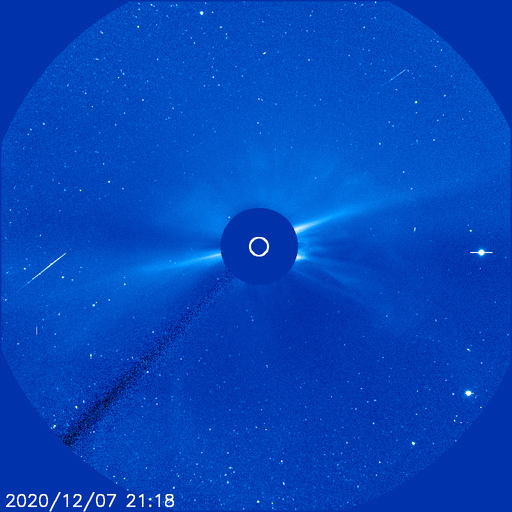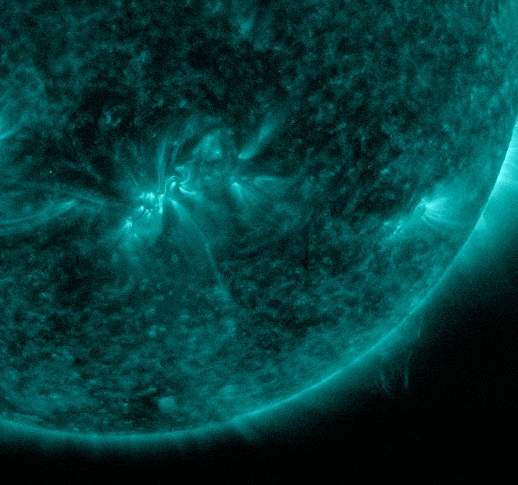Credit NASA Solar Dynamics Observatory
Our Sun is pulling itself away from solar minimum and entered solar cycle 25 earlier this year, last month our Sun belched the most powerful solar flare in more than three years on Sunday 29 November. The solar explosion was measured as an M4.4 flare and yesterday Sunspot AR2790 popped of a C7-class solar flare, a little less powerful than the M4.4 but surely an indication She has awaken.
Yesterday's flare did cause a minor shortwave radio blackout over parts of South America, however, affected frequencies were mainly below 10 MHz. Ironically, the flare itself was a source of strong radio emissions. Ham radio operators may have heard a 'roar' of solar static during the blackout according to Spaceweather.com.
Now for the interesting part: The explosion almost certainly hurled a coronal mass ejection (CME) toward Earth. Preliminary images from the Solar and Heliospheric Observatory (SOHO) show a halo CME leaving the sun a few hours after the flare:

Note: The bright 'stars' to the right of the sun are Mercury (top) and Antares (bottom)
NOAA analysts are modelling the storm cloud to confirm an Earth-directed component and to estimate its potential arrival time. Our best guess is a Wednesday-Thursday (Dec. 9-10) impact, causing G1-class geomagnetic storms.

1 comment:
Any chance a solar flare could burn up some of Elon's satellites?
Post a Comment